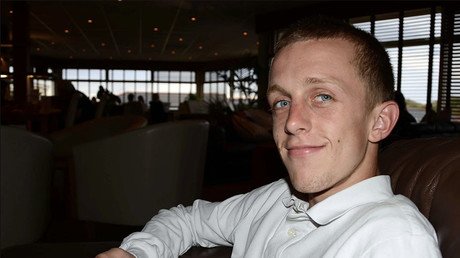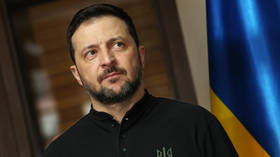'Evidence tampering; lying witness' cast doubt on Craigavon 2 murder conviction - RT investigates
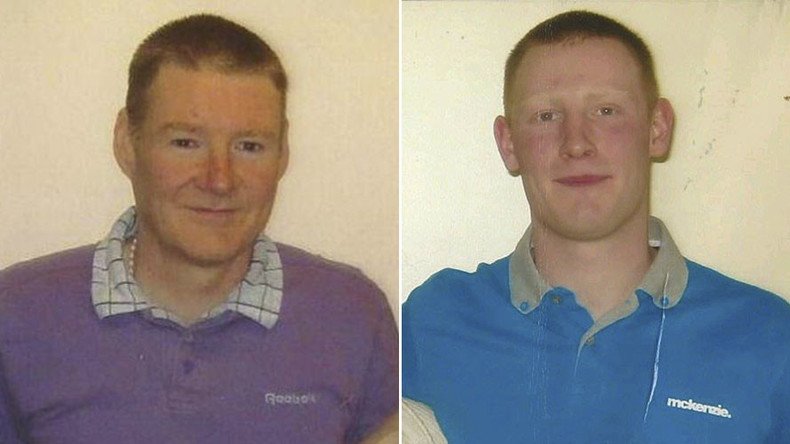
The ‘Craigavon Two’ were wrongfully convicted of murdering a Police Service of Northern Ireland (PSNI) constable amid claims of evidence tampering by security services, abuse of police power and no proof that they were even at the scene, their supporters say.
Having exhausted all other options of legal appeal, Brendan McConville and John Paul Wootton are bracing to find out from the Criminal Cases Review Commission (CCRC) - which investigates possible miscarriages of justice - whether their case will be referred back to the Court of Appeal.
PSNI Constable Stephen Carroll, 48, was ambushed and shot dead in County Armagh in 2009 while responding to a 999 call. He was the first police officer to be murdered in Northern Ireland after the Good Friday agreement.
Rembering the family, friends and colleagues of PSNI officer Stephen Carroll who was murdered on this day in 2009 i… pic.twitter.com/u9YWawYlCU
— James Currie (@JCBelfast) March 9, 2017
In 2012, the ‘Craigavon Two,’ both republicans, were found guilty of Carroll’s murder in a non-jury trial at a Diplock court. While the prosecution never attributed a direct role in the killing to either of them, they were convicted under the joint enterprise law.
McConville was sentenced to 25 years, and Wootton to 14, which was later increased to 18. They had been imprisoned for three years before they went to trial. The Court of Appeal in Belfast dismissed a challenge by the pair in 2014, while the Supreme Court in London refused to hear a further appeal in 2015.
McConville’s wife, Siobhan McConville, says their case is comparable to that of the infamous miscarriages of justice suffered by the ‘Guildford Four’ and ‘Birmingham Six’.
“I believe both men were used as scapegoats. Public pressure demanded a conviction at any cost, and I think that cost was Brendan and John Paul,” she told RT.
“This is a terrible miscarriage of justice. We will keep fighting until both men are home.”
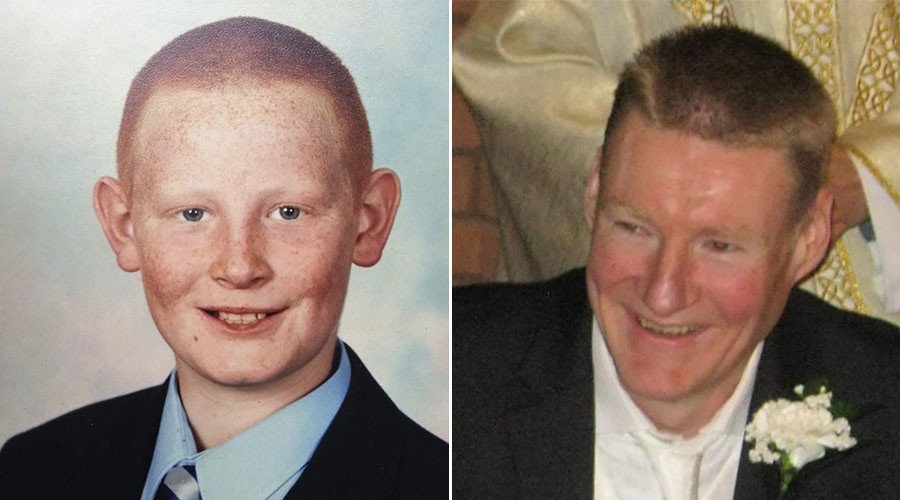
McConville’s lawyer, Darragh Mackin, has submitted 14 Lever Arch folders of evidence in support of the men to the CCRC. He says circumstantial evidence, along with the misapplication of the joint enterprise doctrine, led to a conviction.
“The reality is, a police officer has lost his life, which makes this a highly emotive and politically super-charged prosecution. We feel [the Craigavon Two] have been wrongfully convicted and we will go to the CCRC to overturn this conviction.”
Witness M
Central to the prosecution case was the evidence of a man identified only as Witness M, who claimed to have seen McConville in the area around the time of the killing. However, Witness M’s “credibility and belief has been entirely undermined,” Mackin says.
Witness M did not come forward until almost a year after the murder, by which time both McConville and Wootton’s names had been widely broadcast in the media. Witness M approached police with the information while in a drunken state.
Witness M also suffered from astigmatism and short-sightedness, and would have had difficulty identifying McConville from where he claimed he did, Mackin says.
Following McConville and Wootton’s conviction, Witness Z, who is the father of M, claimed his son was a ‘Walter Mitty’ character and a compulsive liar. “I didn’t want to see anybody in prison on the word of my son, because I know what he is like,” Witness Z said at the appeal hearing.
Under cross-examination, Witness Z said it was not possible for his son to have made the journey he described on the night of the shooting. M’s partner, who was with him on the night, was also unable to corroborate his account at trial.
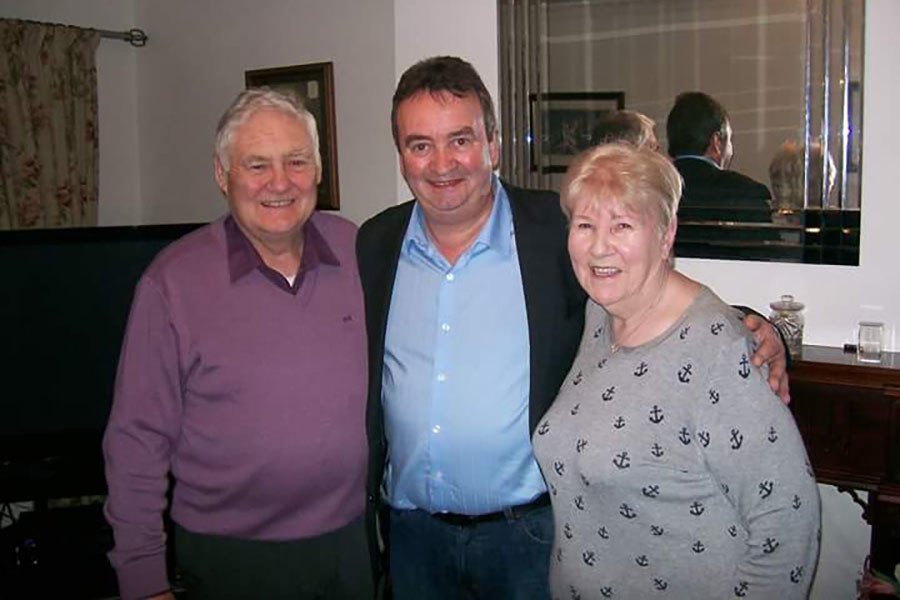
Witness Z was arrested and held for two days before the appeal. Police attempted to force him to take back his statement in a bid to sabotage the defence’s case, Mackin says.
“The police arrested the relative who provided an affidavit on the basis that he was ‘withholding information in relation to an indictable offence.’ The arrest causes serious questions - the lawfulness, the basis behind it.
“It is improper to arrest a witness at any stage, simply for the fact that he provided an affidavit that assisted the defence’s case.”
Meanwhile, M received a £50,000 reward from The Sun tabloid as well as payments from the PSNI.
The tracking device
During the trial, it emerged that Wootton’s car had been fitted with a GPS tracking device by intelligence agency MI5, and was under surveillance at the time Carroll was gunned down. It showed Wootton had been 240 metres from the scene of the killing until ten minutes after the shooting.
However, when the tracking device was taken in for analysis by security services, it went “missing” for two weeks, and the three hours after the murder were mysteriously wiped.
The court heard that an anonymous MI5 agent said he had left the tracking device on his desk and someone had moved it without his knowledge. It was never made clear why Wootton was being tracked.
Peter Kearney, an independent journalist from BaldPolitiKs, who has been following the case for a number of years, told RT: “It’s so bizarre that when people hear it, they don’t believe you. It’s absolutely bizarre - but it’s all in the court transcripts and police interviews.
“The tracking device went missing for two weeks, then data on it went missing. The legal team believe that if the data was still there it would prove that Wootton had nothing to do with it.”
Kearney added: “It would be good to see some evidence - that is part of the problem. There is nothing that puts the two men at the scene and connects them with the killing. That is what is extraordinary.
“That’s not to say that this automatically means that the two men are innocent – they are not the assertions I am making – I’m saying that the trial was not reliable and it needs to be retried.”
The coat
A brown coat, said to belong to McConville, was found in Wootton’s car - allegedly connecting them to one another and to the crime.
The coat, however, did not fit Witness M’s description of what McConville was wearing on the night of the murder, and the coat was dry when obtained by police despite it being a “very, very” wet night when Carroll was killed, Mackin says.
A prosecution DNA expert conceded that there were mixed profiles of at least three, and possibly as many as eight, other people along with that of McConville on the coat. It was accepted in court that the DNA could have been distributed on the coat as a result of McConville speaking or sneezing over it while in the car on another occasion.
Mackin says while the coat had particles of gunpowder residue on it, the residue did not match that of the rifle used in the killing of Carroll.
Joint enterprise
McConville and Wootton were convicted of murder under the controversial joint enterprise doctrine, which holds that a person who assists or encourages a crime can be held just as legally responsible as the person who actually carries it out.
The prosecution never attributed a direct role in the killing to either party, however, instead forming what Mackin calls “a circumstantial joint enterprise case.”
“There is no role in the murder affiliated to either party. At no stage, at no time, has the court actually attributed a direct role in the murder to either individual.
“What they say is taking the circumstantial evidence together - McConville being at the scene, the coat being in the car, Wootton’s car moving around the scene around the time of the murder - that there is a role of each of them in the murder, but they don’t know what the role is.”
Mackin added: “They have never said that either individual wasn’t the killer. They equally haven’t said that somebody else was the killer.
“It remains entirely in a vacuum what they actually purport happened. It still isn’t clear from the Court of Appeal judgment as to what they say happened or who they say carried out which role in the actual murder.”
In July, Dublin City Council passed a motion calling for the release of both men.
The Craigavon Two’s case has been with the CCRC for almost a year.
There is no time limit on how long a case is under review.
The CCRC is the only body in the UK that has the power to send a case back to an appeals court if it believes there is a real possibility that the court will overturn a conviction.
Since starting work in 1997, the CCRC has referred about 3.5 percent of applications it has considered. Of the cases it has referred, about 70 percent have succeeded on appeal.
